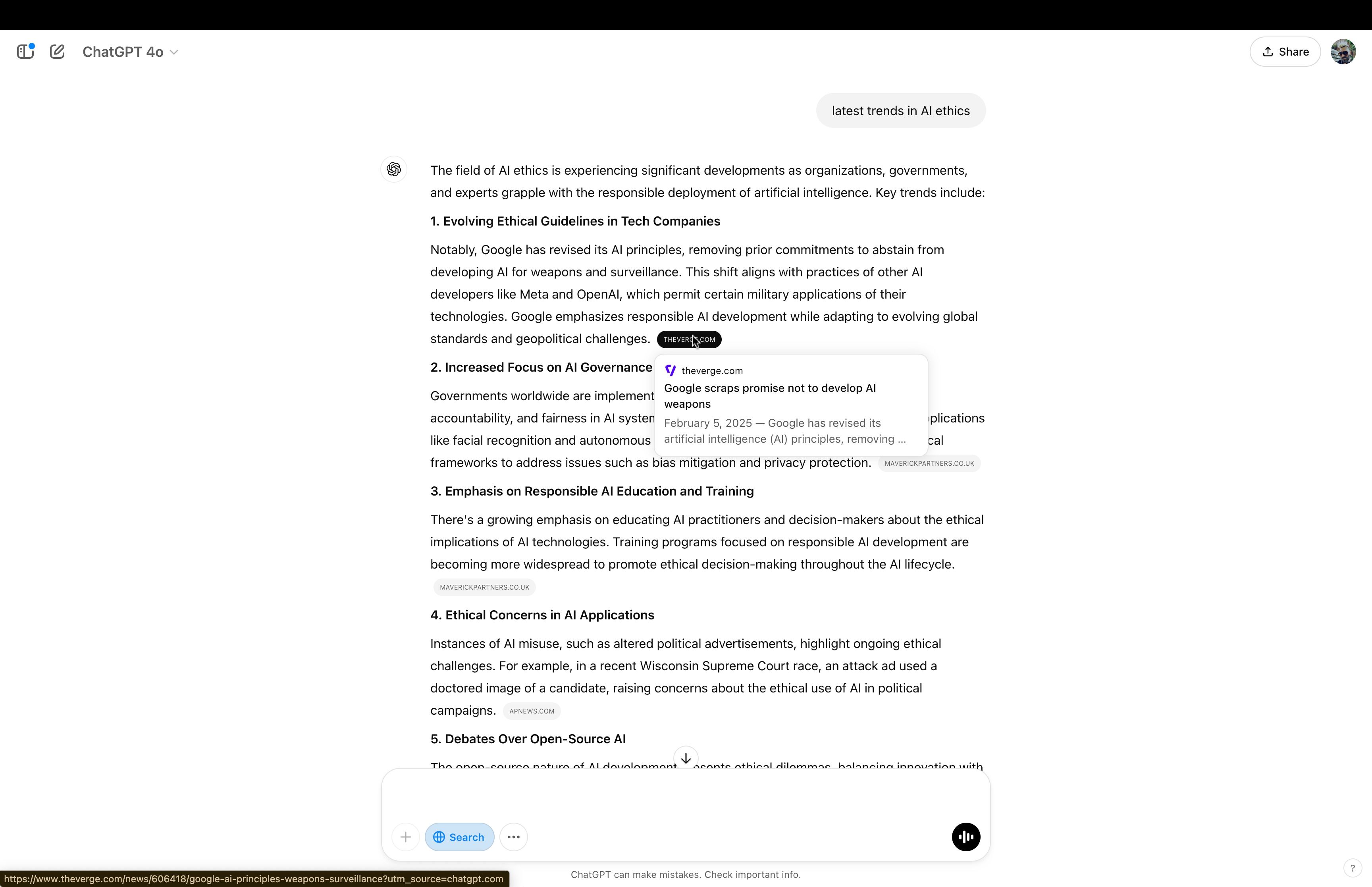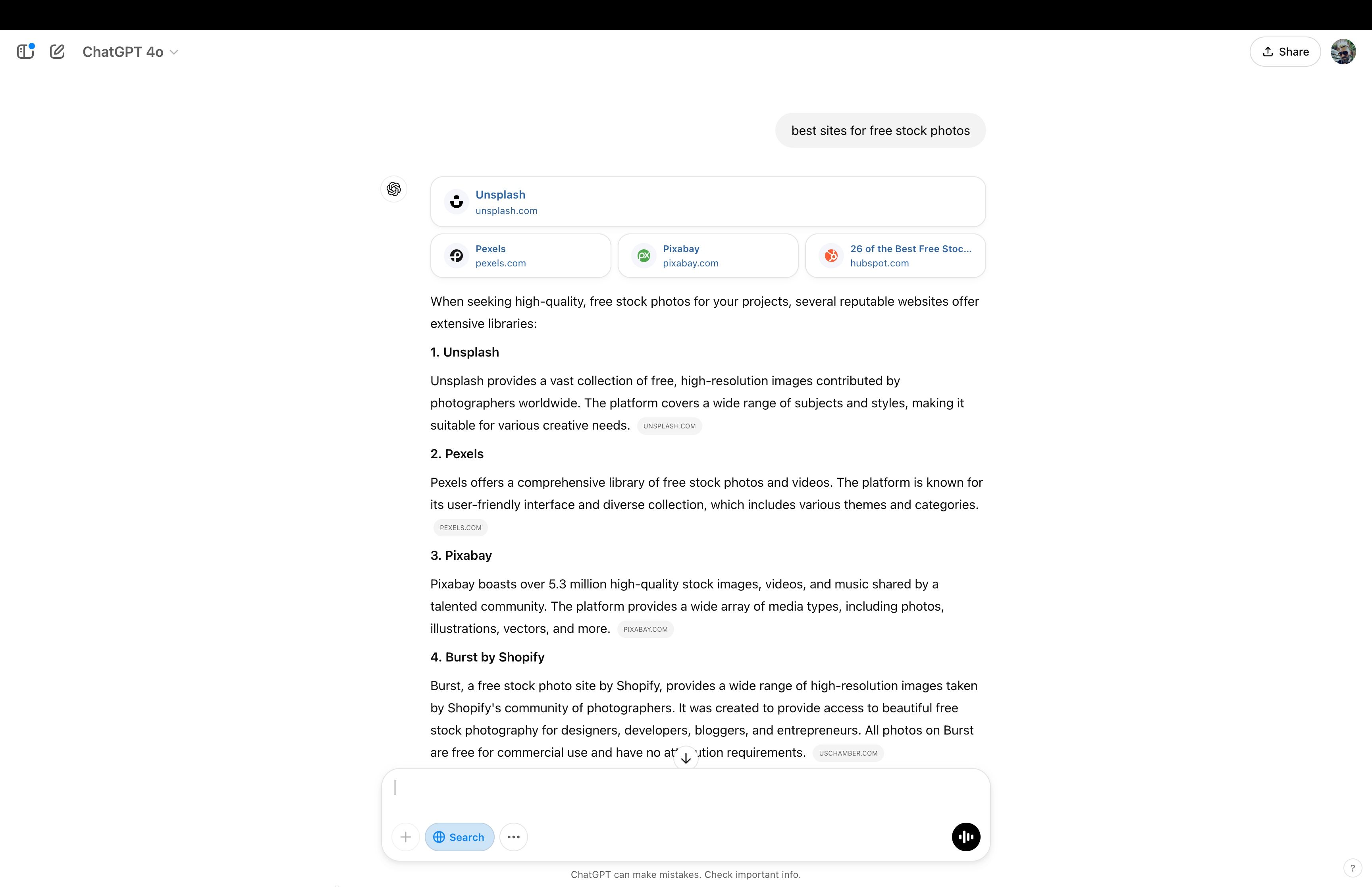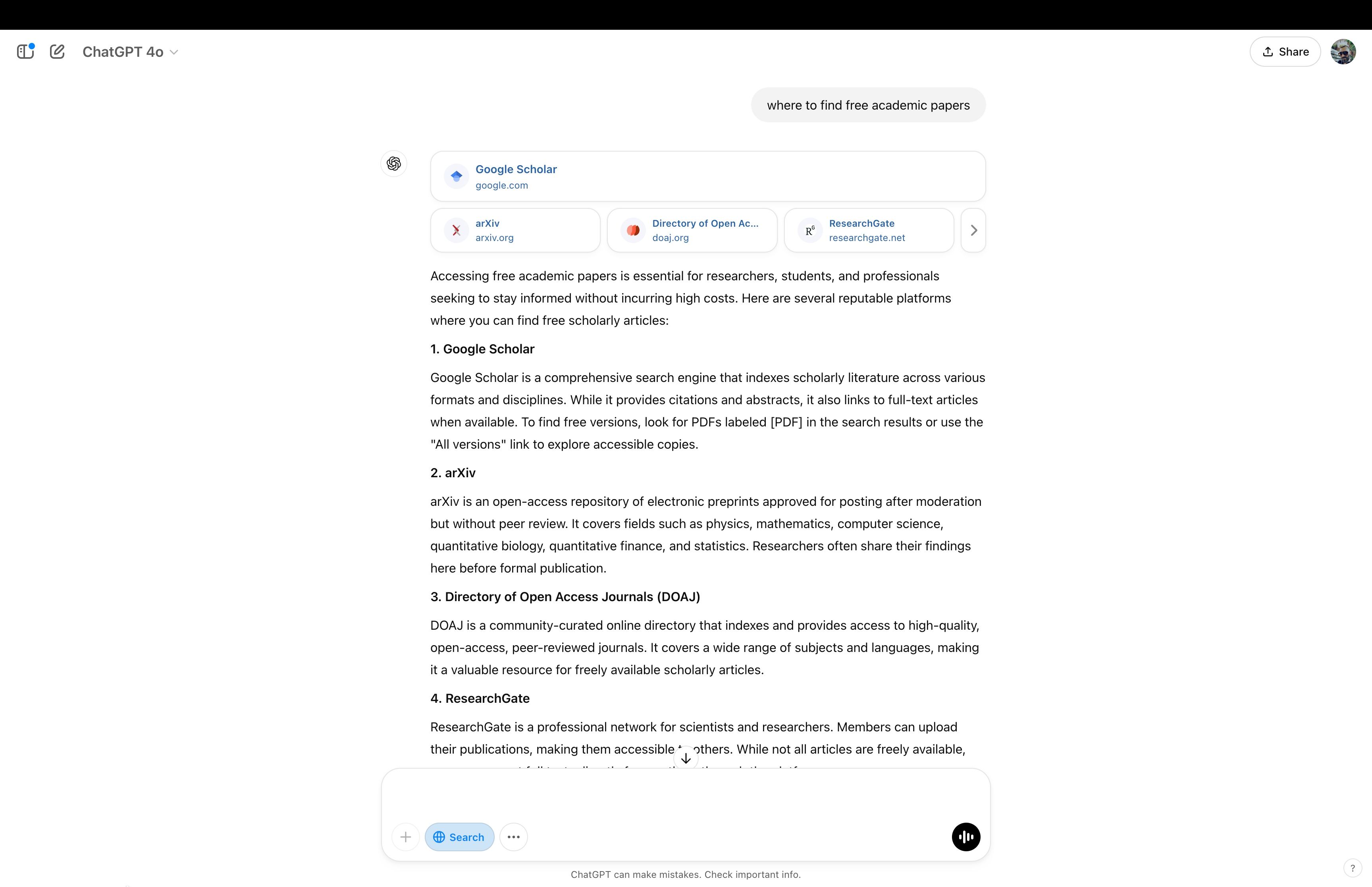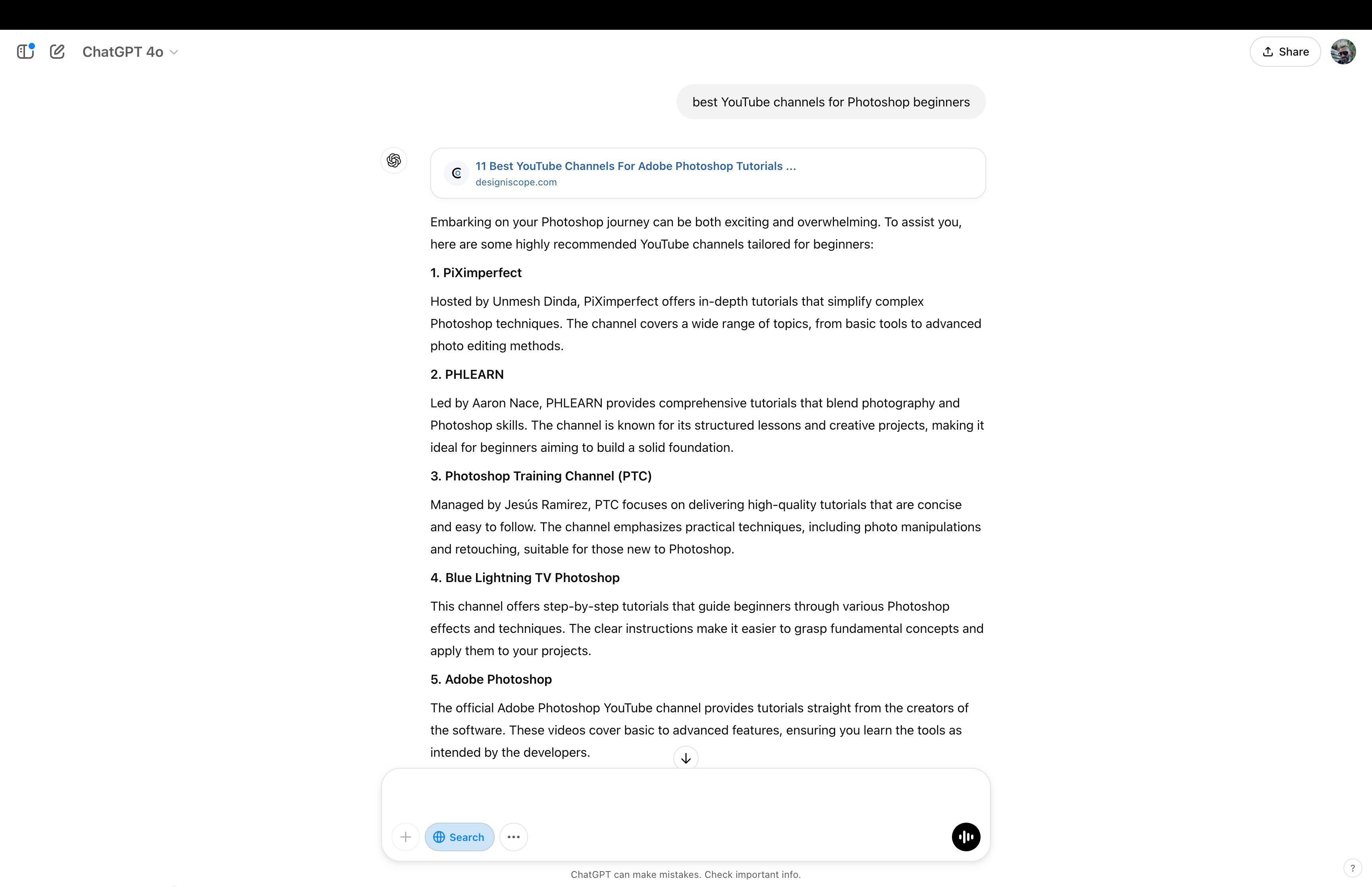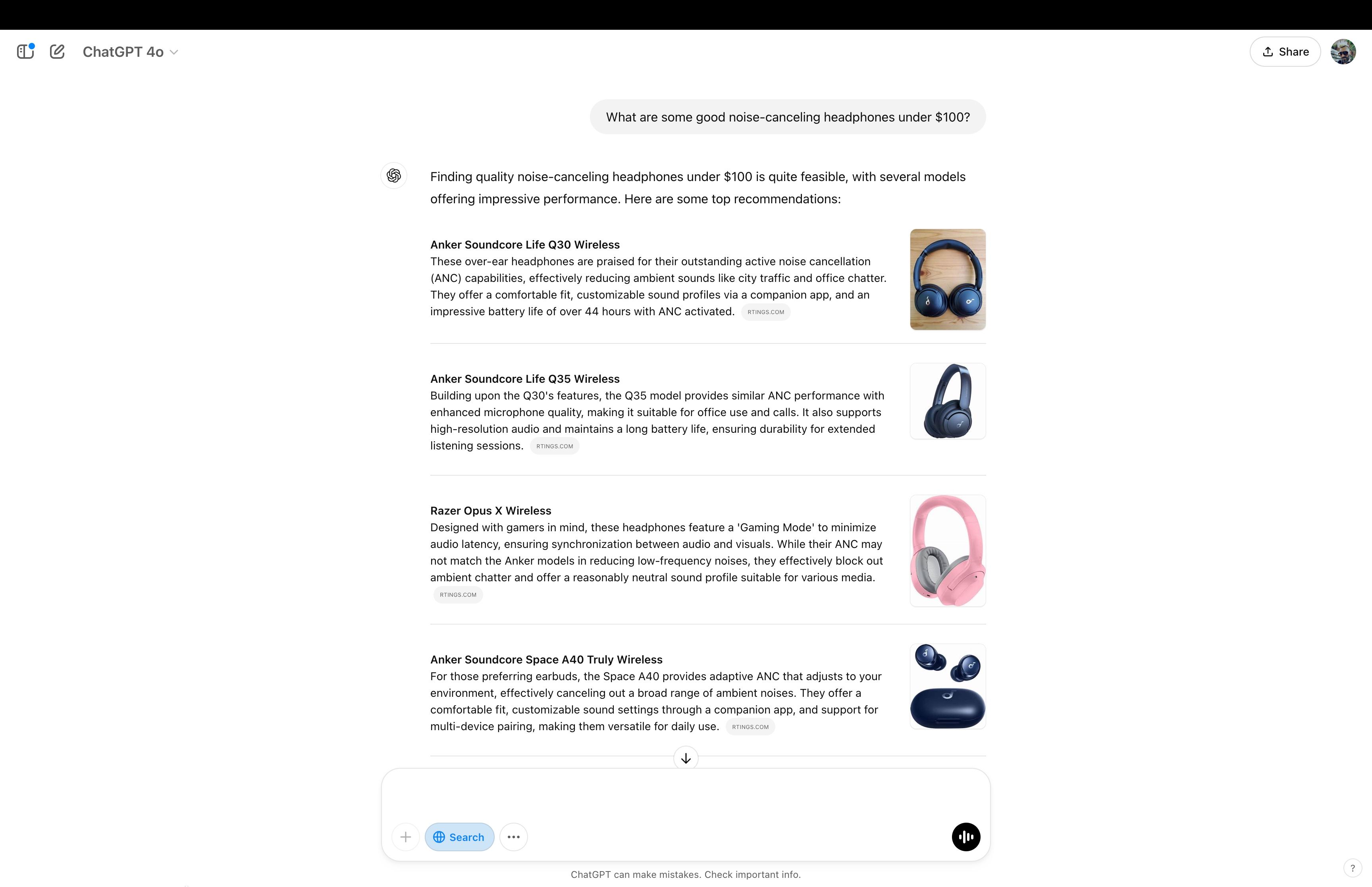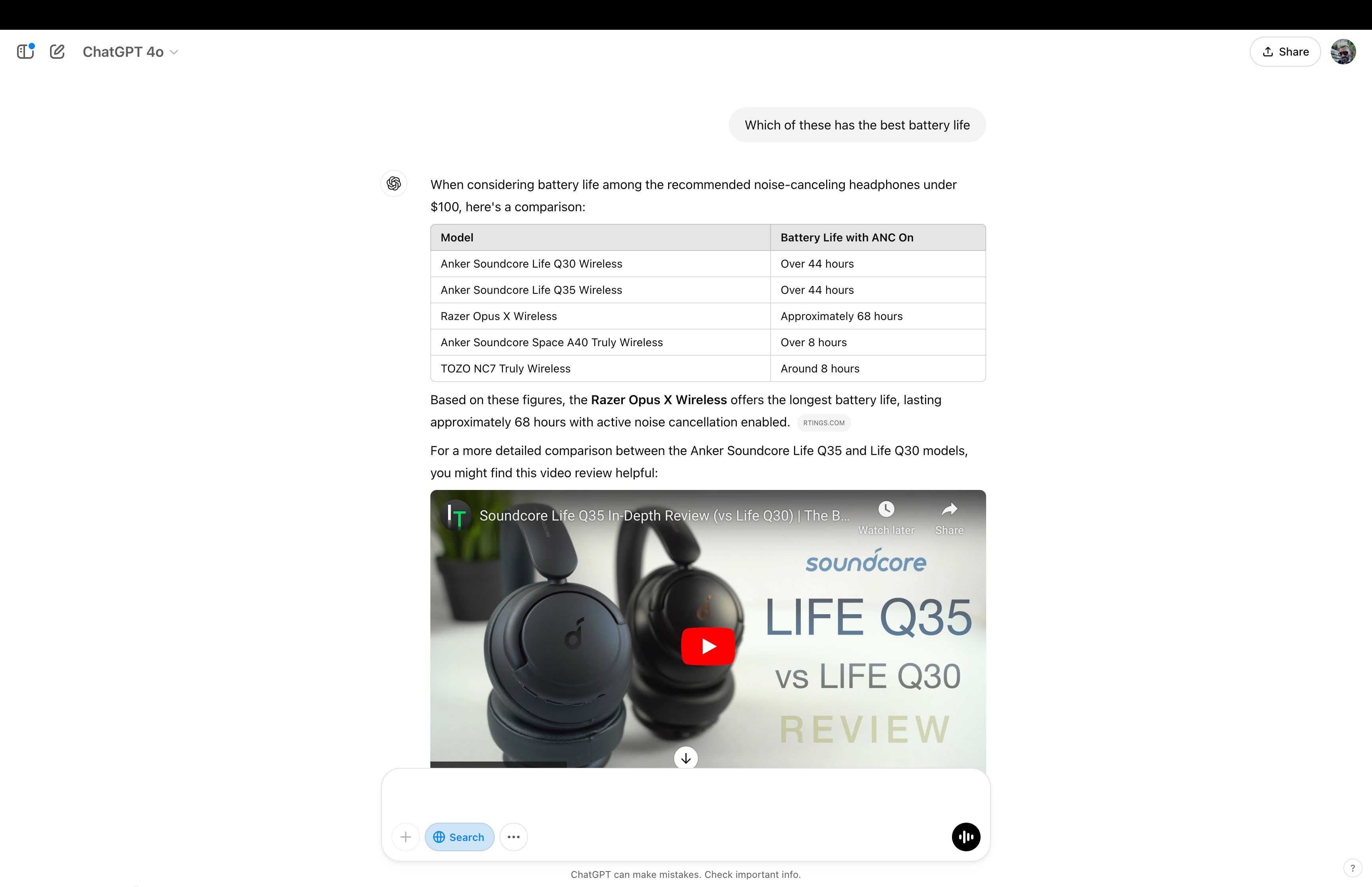With the right approach, ChatGPT Search can be your go-to search tool, offering dynamic, conversational results without drowning you in irrelevant content.
Whether you’re troubleshooting tech issues or digging into research, ChatGPT Search can be surprisingly effective.
Use Advanced Search Operators With ChatGPT Search
ChatGPT Search operates differently from traditional search engines. However, as a starting point, a practical approach is to use advanced internet search operators similar to those found in traditional search engines. These deliver cleaner, more relevant outcomes without the usual clutter of standard web searches.
Essentially, search operators are commands that narrow down or expand the results of a query and can be used across search engines and other applications.
Say you want to isolate a list of all the ChatGPT tutorials on MUO’s website. You can type “ChatGPT tutorials site:makeuseof.com” into whatever platform you’re using to search, and the results will be exclusively related to content from MakeUseOf that features ChatGPT tips, tricks, and so on.
Another difference to remember with ChatGPT Search is its use of citations. Unlike Google, which lists links to explore, ChatGPT synthesizes information into concise summaries and provides citations to support its responses. For example, when I searched for “latest trends in AI ethics,” ChatGPT referenced articles from reputable tech journals with brief snippets.
You must verify ChatGPT’s sources, especially for academic or professional work. Furthermore, you can also force ChatGPT to use high-quality sources, ensuring its output only comes from trusted or specific outlets. Doing so significantly reduces the time spent sifting through countless links.
Finding Specific Content Types
While Google excels at multimedia searches, ChatGPT Search can find specific content types like images, videos, or PDFs. However, unlike your standard Google image search, it won’t deliver images or videos directly but can guide you to the right sources.
When looking for royalty-free images, I used the simple prompt, “Best sites for free stock photos.” ChatGPT suggested platforms such as Unsplash and Pexels, providing a list of sites and explaining each platform’s strengths, helping me narrow down my choices and quickly find the most suitable option.
In another example, if you need academic PDFs, asking “where to find free academic papers” will lead you to repositories like Google Scholar.
ChatGPT can even assist in refining your search strategy to target specific journals or papers, saving you time digging through dense academic databases. For technical manuals, white papers, or specialized reports, try specifying your needs. For example, “Latest cybersecurity white papers PDF,” will yield tailored suggestions on where to find credible documents.
When it comes to other forms of content like video, ChatGPT can summarize video content or direct you to relevant channels and tutorials, but it doesn’t serve the same functionality as the search bar on YouTube.
If you’re learning a new skill like photo editing, asking “best YouTube channels for Photoshop beginners” will provide curated suggestions, complete with brief descriptions of each channel’s focus.
This feature can help you stay on track when overwhelmed by the sheer volume of online content on specific topics.
Use Contextual Follow-Ups to Refine Searches
Personally, I think one of ChatGPT Search’s standout features is its ability to handle contextual follow-ups. With Google, you have to start over with a new query, but ChatGPT allows you to build on previous questions.
This is handy if you want to easily assess options before buying a new or replacement product. Asking Google for the “best budget noise-canceling headphones 2024” will leave you sifting through pages of results.
Instead, you could ask ChatGPT, “What are some good noise-canceling headphones under $100?”.
Then follow up with, “Which of these has the best battery life?” This conversational approach helps refine your search without redundant typing, making the process more intuitive and efficient.
Creative and Research Applications
ChatGPT Search is also a powerful tool for creative projects and structured research. If you’re planning a new project, framing your query as a scenario can yield tailored results. For example, “If I wanted to write a novel in three months but only had 30 minutes a day, how would you suggest structuring my time?” ChatGPT will generate a detailed plan, including suggested resources. It’s also excellent for breaking down complex topics.
If you’re learning how to code in GitHub, ChatGPT can outline a step-by-step guide with links to tutorials and relevant articles. It will explain the basics, from guiding you through setting up repositories and making commits to collaborating on projects.
When to Use ChatGPT Search Over Google (and When Not To)
ChatGPT Search is a versatile tool but not a complete Google replacement. It excels at summarizing complex topics, conducting structured research, brainstorming creative ideas, and refining searches through conversation.
However, for real-time news, multimedia content, niche academic research, or when you need highly specific technical documents, Google still has the edge. Additionally, while ChatGPT provides citations, verifying these sources through traditional search engines can ensure accuracy.
At its best, ChatGPT Search functions like a knowledgeable research assistant, helping you cut through digital clutter to find the information you need. While it won’t replace Google for everything—especially real-time news and multimedia searches—it offers a fresh, efficient approach to information gathering. It excels at delivering curated, conversational responses tailored to your needs, making research feel less like a chore and more like an engaging discovery process.

